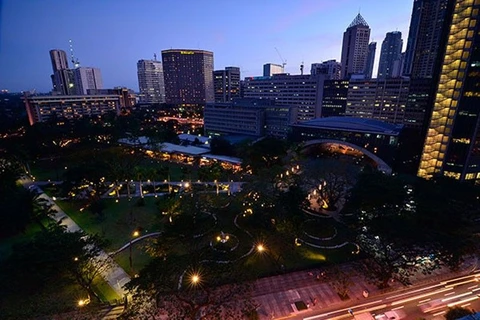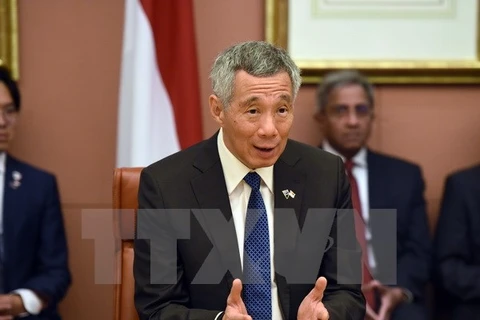Hanoi (VNA) - Finance ministers and central bank governors of member states of the Association of Southeast Asian Nations (ASEAN) and East Asian countries on May 4 discussed the threat of trade frictions and rising protectionism and pledged to stay vigilant and work harder to avert threats to the global economy.
In a statement after the meeting of the ASEAN+3 on the sidelines of the annual Asian Development Bank (ADB) meeting in Manila, the Philippines, representatives of the 13 countries said protectionism, geopolitical tensions and a faster-than-expected tightening in global financial conditions were adding to uncertainty about recovery.
These risks, individually or collectively, threaten the recovery in the global economy, and could induce large capital outflow and financial volatility in our region, they said.
The ASEAN+3 includes 10 ASEAN member nations, namely Brunei, Cambodia, Indonesia, Laos, Malaysia, Myanmar, the Philippines, Singapore, Thailand and Vietnam, and three East Asian countries - Japan, China and the Republic of Korea.
In a report released on May 3 by the ASEAN+3 Macroeconomic Research Office (AMRO), the economy of the ASEAN 3 region is projected to grow 5.4 percent in 2018, underpinned by resilient domestic demand and export growth with stable inflation.
The report, titled “ASEAN+3 Regional Economic Outlook (AREO) 2018,” predicts a robust growth this year in China and Japan, the region's two largest economies.
With improving external demand, growth in the region is expected to be sustained at 5.4 percent for 2018 and 5.2 percent for 2019, according to the report.
The report said improving external demand has allowed the region to build up buffers further against potential external shocks. Regional exchange rates have become more flexible in recent years, and have played a greater role as a shock absorber.
To enhance resilience, the report said policymakers in the region should continue to build policy space, particularly in monetary policy, in anticipation of tighter global financial conditions ahead.
Fiscal policy may have to play a greater role in supporting growth while macro-prudential policy can help safeguard financial stability, the report said.-VNA
VNA
























